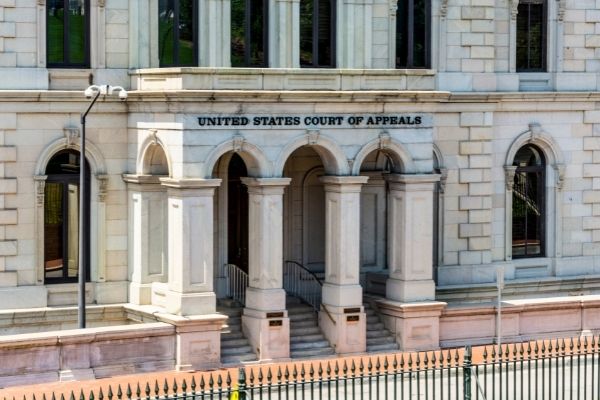Experienced Federal Appeal Attorneys: Experienced Representation for Complex Cases
Experienced Federal Appeal Attorneys: Experienced Representation for Complex Cases
Blog Article
Debunking the Refine of Federal Appeals: What You Required to Know
Navigating the intricate world of government allures can frequently feel like passing through uncharted waters for those not familiar with the process. Recognizing the subtleties of appellate court jurisdiction, the ins and outs of submitting a notification of allure, presenting a compelling short, and making an influential oral debate are vital components that can dramatically affect the end result of a case. By unwinding the layers of complexity bordering federal appeals, people can gain a more clear insight into the systems that control this vital phase of the lawful system.
Understanding Federal Appeals Refine
Looking into the complex realm of the government appeals process reveals a organized and methodical journey through the judicial system - little rock federal criminal appeal lawyers. Federal charms work as a crucial system for assessing choices made by reduced courts. Understanding this process is vital for anyone included in lawful proceedings at the government level
The process normally begins with a party disappointed with a lower court's judgment filing a notification of charm. This causes an evaluation by a greater court, where a panel of judges analyzes the lawful arguments provided by both events. Briefs laying out the legal thinking behind each event's placement are submitted, and oral disagreements might be heard to clear up complex problems.
The appellate court's choice is based upon an extensive examination of the lower court's procedures and the disagreements provided. The courts do not concentrate however reconsider realities on whether legal mistakes occurred that influenced the lower court's decision. As soon as the appellate court reaches a choice, it can verify, turn around, remand, or change the lower court's judgment, giving quality and finality to the lawful disagreement. Recognizing this procedure is vital for browsing the complexities of federal allures properly.
Appellate Court Territory Discussed

Appellate courts have territory over specific types of situations, normally those entailing legal errors, step-by-step issues, or questions of legislation as opposed to valid conflicts. The territory of appellate courts is usually detailed in laws and regulations that control the court system. Recognizing appellate court territory is critical for events entailed in the allures procedure as it identifies whether a situation is qualified for evaluation and the extent to which the appellate court can interfere in the lower court's choice.
Filing a Notice of Allure
The preliminary action in beginning the federal appeals procedure includes filing a Notice of Charm with the suitable appellate court. federal appeal attorneys in kentucky. This important document officially notifies the court and the various other parties entailed in the case that the appealing party means to look for a testimonial of the reduced court's choice. Filing a Notification of Appeal is a stringent procedural demand that establishes the appellate process in activity
When preparing the Notification of Appeal, it is important to make certain conformity with the specific rules and standards of the relevant appellate court. The paper needs to typically include info such as the situation name, the reduced court's name, the day of the judgment being appealed, and a succinct declaration indicating the grounds for the charm.
When submitting a Notification of Allure,Timeliness is of the essence. Missing the due date for submitting this file can result in the allure being disregarded, underscoring the relevance of timely and accurate initiation of the appeals process. It is suggested to seek lawful advice to navigate the complexities of submitting a Notification of Allure properly.
Instruction and Dental Argument
In the appellate process, providing composed briefs and involving in dental debates play pivotal roles in promoting for the appealing event's placement prior to the appellate court. Briefs are detailed legal documents that lay out the parties' arguments, legal authorities, and evaluation sustaining their placements. These composed submissions supply the court with an in-depth understanding of the facts of the situation, the pertinent law, and why the appealing party believes the reduced court's decision ought to be overturned.
Adhering to the submission and review of the briefs, dental disagreements use the events an opportunity to more clarify their settings, address any questions the appellate judges might have, and emphasize essential factors from their composed briefs. Dental arguments are an opportunity for the attorneys to encourage the judges via spoken campaigning for and responses to inquiries from the bench.

Receiving the Appellate Court Decision

Final Thought
Recognizing the appellate court jurisdiction, filing a notice of appeal, preparing briefs, and presenting oral disagreements are all crucial elements of this procedure. Inevitably, obtaining the appellate court choice can give quality and resolution to lawful conflicts.
As we progress from comprehending the federal charms procedure to exploring the intricacies of appellate court territory, a fundamental element comes to light regarding the authority and limitations of these higher courts in the legal landscape. Appellate court territory refers to the scope of cases that a particular appellate court has the power to decide and assess upon. Unlike test courts that listen to situations for the first time, appellate courts are limited to reviewing decisions made by reduced courts. Recognizing appellate court jurisdiction is vital for parties included in the allures process as it identifies whether a case is qualified for evaluation and the extent to which the appellate court can interfere in the lower court's decision.
Whether the appellate court affirms, turns around, or remands the reduced court's decision, understanding the implications of the judgment is important for all celebrations involved in the appellate procedure.
Report this page